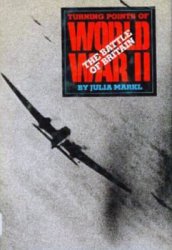Nigeria was involuntarily sucked into World War II (1939-1945), given its status as a colony of Britain. Britain’s economic, industrial, military, and air power were weakened by World War I, and thus Britain was less prepared for a world war in 1939 than it had been in 1914. This, coupled with a quick succession of reverses in Europe, North Africa, the Mediterranean, and the Far East, meant that Britain needed all the support it could muster from its colonies to prosecute the war. Nigeria, one of Britain’s biggest African colonies, did not disappoint.
Britain mobilized Nigerian public opinion in its favor through assiduous propaganda. Hitler was demonized as “the harbinger of darkness,” and the war itself was presented to the public as between bondage, represented by Hitler, and freedom for humanity, represented by Britain and the Allies. Hitler’s racist theories, his foul massacres in Poland, and the millions of Jews who died in his concentration camps and gas chamber made the oppressive and exploitative British colonial rule in Nigeria seem benign. Not surprisingly, Nigerians unanimously affirmed their loyalty to Britain and the cause of the Allies. Influential Nigerian political leaders such as Nnamdi Azikiwe and Herbert Macaulay, hitherto critics of British colonial rule, reversed gear and appealed to all Nigerians to “rally round the Union Jack.” Revered “royal fathers” used the influence of their esteemed offices to urge all Nigerians to support Britain and the Allies. The response was infectious, and seemingly overnight, win-the-war organizations mushroomed all over the country, propagating the gospel of a holy war against the force of Satan.
Verbal affirmation went hand in hand with concrete support. Barely a fortnight after the commencement of the war, the Nigerian War Relief Fund (NWRF) was launched due to the urging of Sir Bernard Bourdillon, governor of Nigeria. The fund was for the provision of relief to victims of the war in Britain and other Allied countries. A national committee to oversee and popularize the fund was formed, and was backed up by local committees across the country. to the efforts of the committees, donations soon began to flow into the fund from individual persons and corporate entities in all parts of the country. Entertainments of various sorts were staged to raise money for the fund. Some people donated voluntarily, while funds were also squeezed out of local communities, civil servants, and other people in the colonial establishment through compulsory levies. Among the war relief and charitable organizations that benefited from the fund were those in Britain, Malta, China, Yugoslavia, Holland, Burma, Russia, Greece, Poland, and Finland. In addition to the NWRF, there was also the Win the War Fund to which Nigerians contributed substantial amounts of money. Some provinces made additional donations to Britain’s war effort for the purchase of weaponry. The Nigerian government on its own part made substantial interest-free loans to Britain.
Nigeria also contributed to the Allies’ war effort in regard to the supply of agricultural and mineral resources needed by British industries. The closure of the Mediterranean sea-route to Britain was compounded in 1942 when Japan seized the Far East island colonies. Consequently there developed a frantic demand in Britain for almost everything west Africa could grow and mine. To ensure accelerated supplies to Britain’s war industries by her West African colonies, Britain dispatched a resident minister of Cabinet rank, Sir Swinton, to West Africa. Nigeria was penciled as a major actor in the scheme with especial regard to palm oil, cocoa, groundnuts, and tin. Subtle as well as coercive administrative measures were adopted to get Nigerian farmers to increase their production of the export crops even at the expense of local food production. The rationing of essential imports such as bicycle and lorry tubes and tires was manipulated in favor of traders in export produce, and local trade in foodstuffs was restricted. London also reversed its laissez-faire policy and set up the West African Produce Control Board, which it made the monopoly purchaser of British West Africa’s exports. The board fixed the prices it bought produce from farmers invariably far below open market prices. About 1,800 unwilling laborers were conscripted into the tin mines of Jos under appalling conditions and at low wages. Against the poor returns for his produce or wage labor, the Nigerian consumer was faced with escalating prices of imports arising from wartime scarcity. The government tried to mediate the situation by controlling the sale of essential commodities, but the measures merely aggravated the situation.
Falling living standards and harsh sacrifices thus inflicted on all Nigerians estranged relations between Britain and Nigerians, but not to the point of considering Hitler as an alternative.
When Mussolini and Hitler effectively closed the Mediterranean to the Allies, Nigeria suddenly became strategic in the Allies’ military calculations. The country provided the Allies with take-off points for bombing missions in North Africa and the Mediterranean front. Young Nigerians were hurriedly mobilized and drafted into various military and paramilitary construction projects such as airports, harbors, barracks, and railways. The rough-and-ready methods used in prosecuting the projects meant that the laborers were stretched to their utmost. Apart from the Nigerians who fought the war at the home front, there were 100,000 others who took part in direct combat and ac-quited themselves heroically, in Eritrea, Abyssinia (Ethiopia), Sudan, India, and, especially, Burma.
Inevitably the war impacted Nigerian in various ways. Excessive imperial direction of the economy estranged relations between ruler and ruled, evident in a series of protests by farmers, traders, and wage earners. The General Strike of 1945 was the most publicized of the protests. When Prime Minister Churchill denied that the principle of self-determination for all subject peoples, espoused in the Atlantic Declaration, applied to Africa, relations between London and Nigerian political leaders were strained to the limits. Nigerians, however, returned from the war imbued with a new confidence in themselves and with the aura of their colonial overlords shredded. During the war they had had mingled with working-class, poverty-stricken, and barely literate Europeans, and they had killed many Europeans in the name of freedom and democracy. They started to question their own subject status and demanded a change in the status quo. It became increasingly difficult for Britain to deny freedom and democracy to Nigerians. The emergence of the United States and the Soviet Union as the world’s leading powers—both anticolonialists—and the diminution of Britain as a world power weakened the cause of colonialism in Africa. The upshot of this was the radi-calization of the nationalist struggle, which resulted in Nigeria’s independence in 1960.
Onwuka N. Njoku
See also: Azikiwe, Nnamdi; Macaulay, Herbert; World War II: North Africa.
Further Reading
Amadi, L. O. “Political Integration in Nigeria, 1939-1945: The Role of Economic Developments During the Second World War.” Trans-African Journal of History. 6-8 (1977-1978): 142-153.
Coleman, J. S. Nigeria: Background to Nationalism. Evanston: Northwestern university Press, 1965.
Crowder, M. West Africa Under Colonial. London: Hutchinson and Co., 1968.
Darwin, J. Britain and Decolonization: The Retreat from Empire in the Post-War World. Hampshire and London: Macmillan Education, 1988.
Hargreaves, J. D. Decolonization in Africa. London: Longman, 1988.
Mansergh, N. Survey of British Commonwealth Affairs: Problems of Wartime Cooperation and Post-War Change, 1939-52. London: Frank Cass and Co., 1968.
Njoku, O. N. “Burden of Imperialism: Nigeria War Relief Fund, 1939-1945.” Trans-African Journal of History. 6-7 (1977-1978): 79-99.
-. “Export Production Drive in Nigeria During World War
II.” Trans-African Journal of History. 10, no. 1-2 (1981): 11- 22.
Olusanya, G. O. The Second World War and Politics in Nigeria, 1939-1953. London: Longman, 1973.
Pearce, R. D. “Morale in the Colonial Service in Nigeria during the Second World War.” Journal of Imperial and Commonwealth History. 11, no. 2 (1983): 175-196.




 World History
World History









